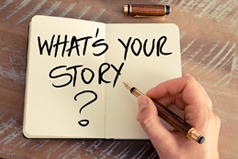Hi; I’m Carol. I’m recovering from
codependence.
What triggered recovery for me was separation. The year I turned 35, I had been
married for nearly eight years. We were educated, employed and active. We had a
wide circle of friends. Just before going to sleep one night, I said to him, "I
wonder if you’re having an affair with your co-worker." He said, "I am." It was
like a kick in the stomach. My pride was hurt, but my self-esteem was shattered.
I believed that, as a woman, I was worthless unless there was a man in my life.
On the positive side, that year no other aspect of my life remained unchanged
either: I graduated with a degree in a new field, got a well-paying job, ran my
first marathon, and had my hair cut. Over the next five years I completed an
Outward Bound course, met God, divorced, and fell in love every spring with a
different unavailable manbut didn’t act on those feelings. I realized I needed
to be celibate.
Then, two years in a row I fell in love with the same person, this time someone
who was available: a woman. She is the love of my life, but at that point I
crashed. I was afraid of being loved. I asked for and got a demotion to a less
demanding position. I saw my sweetheart and one new friend. I spent a lot of
time alone, getting to know who I really was. I was very much aware of God’s
presence and love. During those quiet years I began volunteering as a chaplaincy
visitor with women inmates at the prison in town. One of the inmates showed me a
book she had been reading about codependence. I looked through it and
immediately took note of the title and author to get a copy from the library.
Like many self-help books, this one began with a questionnaire. I was answering
"Yes" and "Always" to every question. I realized I was codependent; the name for
what was wrong in my life was codependence, and I had been actively codependent
for three decades. I realized I was an addict. There had been many addictive
behaviors in my past including sugar, nicotine and alcohol, but most
importantly, as an active codependent, I had used sex with men to feel loved and
charm with everybody else to feel liked. My main fix had been a potent
combination of adrenaline and endorphins that good feelings from another person
can trigger. And I had triggered it often. I was no less addicted because I
manufactured those chemicals in my own body and they were perfectly legal. My
source had been just about anybody who crossed my path. I could make men fall in
love with me; I didn’t love myself. I could make people like me; I didn’t like
myself. With that realization, I felt relief: it was true. I felt joy: it was
clear. And I felt energy: I knew what I had to do.
I went to a first CoDA meeting but felt uncomfortable, partly with the large
group size but mostly with myself. I didn’t go back to CoDA for six or seven
years. By that time there was another, smaller group, which I have attended ever
since. I realized that the person I really needed to divorce was my mother. My
mother’s emotional needs were unmet, and for 15 years she had used a dependent
young personmeto meet those needs. After I became an adult that situation was
exactly 50% my fault because I let it go on for a further 15 years, failing to
pay attention to my own anger. Finally, scraping up all my courage, I told my
mother my life was my own. I said she needed to get a life too. My father was
there. After my mother flounced off to the living room to sulk, my father leaned
over and whispered in my ear, "Thanks for telling her off." The following year I
told my mother I didn’t want her to call me. She was six hours away by car, but
I was shaking. It had taken me over 30 years to feel what I felt, and say it.
Although my mother and I have always written, I stopped visiting. I wrote to her
what incidents had made me feel used. Three years later, confident I had made my
point and assuming the relationship was now safe, I visited again. That
assumption was a mistake. The visit was perceived as the end of an unpleasant
phase, as if the unhealthy symbiosis would continue just as before. I learned
that I needed to be clear more than once: repeatedly, in fact. It was not until
the end of my father’s life four years later that I returned, this time to a
genuinely altered situation. Today my mother has developed a life of her own and
is a far happier person. That is her job; and my life is my job.
In the meantime, safe in the recovery knowledge that it was enough to be loved
by God and myself, I overhauled my other relationships. I knew I needed to
exercise love, but first I needed to do a thorough housecleaning. I took the
time to feel my feelings about each relationship in my life. I kept a journal.
Patterns emerged: I realized who I felt accepted, energized and nourished with,
and who I felt limited, drained and starved with. I realized I had been
overspending emotionally on superficial socializing. I wanted intimacy. In new
and renewed relationships I tried to go for quality, not quantity. I learned to
love people and still say no to parties and meetings. I identified the qualities
I would look for in a friend; they were the things I liked most about myself.
Interestingly, even without realizing it, over time I had consistently made
better choices. That felt good! The Christmas after my father died was an
opportunity to write to my relatives. I had been carrying around resentment of a
number of them because I had not known how to affirm who I was myself: a quiet,
serious person and a bright woman. In writing to them that year I was able to
speak in the first person, express myself positively, and leave them a graceful
exit. With these people my amends were to set limits and to express loveand not
to make promises I couldn’t keep about seeing people again if I didn’t want to
do that. That exercise felt so good that I extended it to everyone. With some
people from the past my amends were to write, saying that I appreciated them;
often with these people as well, I needed to make no promises but simply to let
the appreciation be enough on its own. Closure was the goal.
With new friends openness has been the goal. I am grateful that I now need more
than the fingers of both hands to count the persons I call close friends. For a
recovering codependent, that’s quite an accomplishment! One benefit of recovery
has been that I have been able to identify a handful of sound friendships even
from the long time I spent being actively codependent. That discovery makes me
feel that those years have been redeemed, and that nothing is ever completely
lost. Many of these friends now live out of town, and yet when we spend time
together I know that intimacy, honesty and shared values are consistently there.
I have found trusting close friendships both effortful and rewarding.
Interestingly, there have been random opportunities to see other acquaintances
from the past as well; I run into people on the street or occasionally at
funerals. Now that I have been upfront with them it is manageable and sometimes
a pleasure to say hello. I maintain cordial distance, and it is a relief to have
been honest. So those relationships, too, once repaired, are now free to develop
in a less hectic and more healthy way. I realize I am not afraid of encountering
anyone.
Codependence was my main addiction, the one that triggered recovery for me
(thank God), but it certainly wasn’t alone. It pointed to an interesting range
of other addictive behaviors in my life. You wouldn’t know it to look at me now
but at one point I had a weight problem; I smoked (although not heavily) for
seven years; and there was a time when I probably drank more alcohol than was
good for me. I don’t think anyone would have called me a raging alcoholic, but
for a number of years it never occurred to me to socialize without alcohol. I
don’t even have a caffeine habit these days! I now think all those behaviors
were relational. They pointed to not feeling loved, not knowing how to love
myself in healthy ways, and seeking love outside myself. The last frontier for
me in terms of recovery from addictions will be overachieving. I’m getting a
feel for the fine line between being forcing myself, for the persona, and being
fully exercised, for the joy. The more aware I am the easier it gets to feel
that distinctioneven if it’s the very same activity. I am pleased and proud and
grateful that in recovery I have crafted a life for myself. My life is
furnished: with close friends, old friends, young friends, paid and unpaid work
and creative activities, all of which give me joy. I learn from every
relationship and every activity. My sweetheart and I can love each other well,
because each of us has learned to love herself. When I need to be quiet, I can
affirm that. When I learn something new, I can enjoy that.
How did the codependence start? Who knows? I’ve traced it back to the fact that
both my mother and my grandfather were middle children and, more seriously, to
the Depression of the 1930s and the lack of medical treatment then. To the
extent that economic and medical impoverishment were the result of government
intransigence, I suppose a person could blame politicians, but there comes a
time to look inward, not outward. Inwardly, then, if I take my life in
seven-year segments, the first seven years were secure. I knew an agrarian
society, the family farm, and all my relatives. I’d say my mother never had the
courage to stop feeling responsible for her sister and my father never had the
courage to confront his father, so emotionally there were a lot of people in bed
together with my parents and it’s not surprising that they produced only one
child, myself, the year after they were married. By the time my brother was
adopted eight years later my parents had fallen out of love. For me this was the
beginning of another, sadder seven-year cycle. I became depressed for the first
time. I would wake up happy but soon feel an unnamed gray cloud move over my
life. My parents could not afford feelings, but my grandmother said I was
looking pale and asked if I was feeling well, and today I am moved when I recall
her kindly concern. In high school I was not a happy camper. It seemed that the
young men were thrust into preparation for the job market, and the young women
into preparation for the marriage market. I started overeating sugary food. In
that setting the only thing I had going for me was marks. Although I did well, I
could have done much betterif only I had known what the big hole in my life was
named and what I could do about it. I didn’t feel normal until I reached
university. I started drinking alcohol and smoking and I lost my virginity, but
at least, I said to myself, I was with people whose broader vision was
unimpaired. My arts degree enriched my life but not financially, and after
graduating I spent 11 years in interesting but low-paid jobs and interesting but
low-love beds. Fortunately I also took up outdoor endurance sports, which offset
my unhealthier habits. My boyfriend left me, ostensibly for another woman but
actually, I now see, because I had become a demanding codependent. And, by the
time I went back to school at age 33, I was repeating the same pattern with my
husband. My successful image was neither true nor tenable. Bottoming out was a
relief.
Today I am out of the prison of being actively codependent, and one condition of
my parole is that I need to set boundaries with every single person. I accept
that limitation with gratitude, because in it lies my strength: the need to be
honest and the need to trust my relationship with God and my healthy self first.
I realize that I am loved, that what I do is enough, that what I am is enough.
Thanks for listening.
Carol E.




Recent Comments